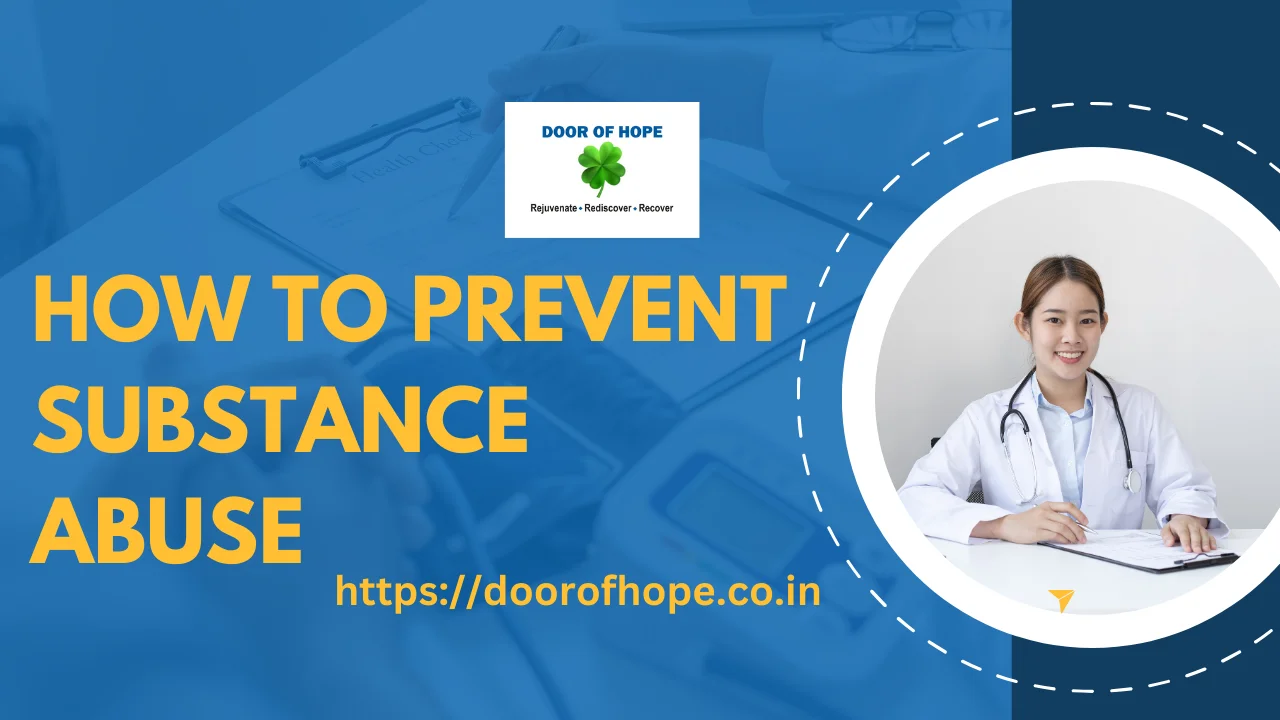Substance abuse poses a significant threat to individuals' well-being and society at large. A comprehensive strategy to prevent substance abuse involves multifaceted approaches, encompassing education, awareness, support systems, and personal responsibility.
This article aims to explore in-depth strategies and tools to prevent substance abuse, empowering individuals to make informed choices and build resilient communities.
Understanding Substance Abuse
Substance abuse involves the misuse of legal or illegal substances, leading to harmful consequences on physical and mental health. From alcohol and tobacco to illicit drugs, the misuse of these substances can result in addiction, health problems, and social issues.
1. Knowledge is Power: Educating Yourself and Others
- Delve into the risks and repercussions of substance abuse through reputable sources.
- Share this information within your community, schools, and social circles to raise awareness.
- Understand that substance abuse can affect anyone, irrespective of age, background, or status.
2. Identifying Triggers: Recognizing Vulnerabilities
- Be aware of triggers such as stress, peer pressure, or emotional distress that may lead to substance use.
- Develop healthy coping mechanisms to manage stress, anxiety, or other emotional challenges.
- Seek support from trusted individuals or professionals when navigating vulnerable situations.
Building a Supportive Environment:
Creating a supportive ecosystem plays a pivotal role in preventing substance abuse, fostering healthy relationships, and promoting mental well-being.
1. Strong Foundations: Nurturing Healthy Relationships
- Foster open communication within families to create a supportive and understanding environment.
- Cultivate friendships with individuals who encourage positive choices and discourage substance use.
- Establish a network of support that emphasizes the importance of well-being.
2. Community Connection: Engaging in Positive Activities
- Participate in community events and activities that promote healthy lifestyles.
- Join local clubs or groups that align with your interests, fostering a sense of belonging and purpose.
- Prioritize engagement in constructive activities to deter substance misuse.
3. Mental Health Matters: Prioritizing Emotional Well-Being
- Address mental health concerns promptly through therapy or counselling if needed.
- Encourage open discussions about emotions and the importance of seeking help when required.
- Advocate for mental health awareness within communities, schools, and workplaces.
Educating the Youth to Prevent Abuse of Substance
The youth are particularly vulnerable to substance abuse. Empowering them through education and positive role models is crucial.
1. School Programs: Empower Through Education
- Support and advocate for comprehensive drug education programs within schools.
- Encourage open dialogues in educational settings to discuss the risks associated with substance abuse.
- Foster a non-judgmental environment for students to express their concerns and seek guidance.
2. Positive Role Models: Inspiring the Next Generation
- Highlight success stories of individuals who have overcome substance abuse, emphasizing the rewards of a substance-free life.
- Showcase role models who prioritize a healthy lifestyle and have succeeded despite challenges.
- Instil values of making informed choices and maintaining a substance-free life.
Taking Personal Responsibility
Encouraging individuals to take personal responsibility plays a pivotal role in substance abuse prevention.
1. Setting Goals: Creating a Vision for the Future
- Establish short-term and long-term goals that align with a substance-free lifestyle.
- Visualize the positive outcomes of a life free from substance abuse, using aspirations as motivation.
- Use goal-setting as a tool to stay focused and resilient against potential triggers.
2. Resilience Building: Learning from Setbacks
- Acknowledge that setbacks may occur but view them as learning opportunities.
- Cultivate resilience, bounce back from challenges, and seek support from trusted sources during difficult times.
- Emphasize the importance of self-care and perseverance in maintaining a substance-free life.
Conclusion
Preventing substance abuse demands collective efforts, encompassing education, supportive environments, and personal accountability. Empowering individuals, especially the youth, through knowledge, positive role models, and resilience-building tools, lays the foundation for a healthier, substance-free future.
Building communities that prioritize well-being and informed choices contribute significantly to a society resilient against the pitfalls of substance abuse.
FAQs
Understanding the risks and consequences empowers individuals to make informed choices. Knowledge is the first line of defence against the challenges posed by substance abuse.
Be aware of situations or emotions that make you vulnerable. Develop healthy coping mechanisms for stress, anxiety, and peer pressure. If needed, seek support from friends, family, or professionals.
It involves nurturing healthy relationships, participating in positive activities, and prioritizing mental well-being. Surround yourself with those who encourage positive choices and seek support when needed.
Address mental health concerns promptly, encourage open discussions about emotions, and emphasize the importance of seeking professional help when needed.
Support comprehensive drug education programs, encourage open dialogues, and create a non-judgmental environment for students to discuss their concerns.
Positive role models who have overcome substance abuse showcase the rewards of making positive life choices and inspire the next generation to prioritize a healthy lifestyle.
Establish short-term and long-term goals, visualize positive outcomes of a substance-free life, and use your aspirations as motivation to stay on track.
Understand that setbacks may happen; view them as learning opportunities. Develop resilience, bounce back from challenges, and seek support from friends, family, or professionals during tough times.


